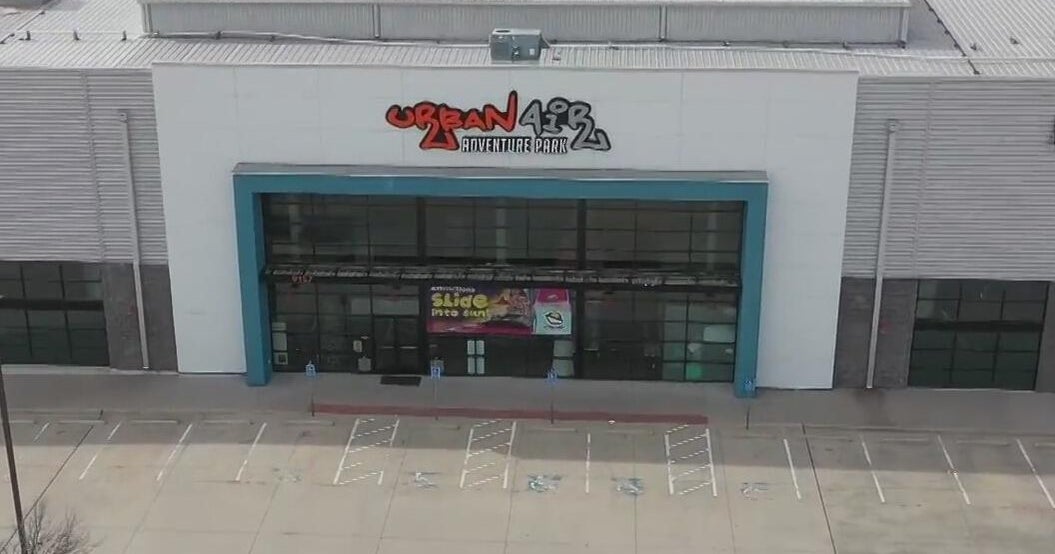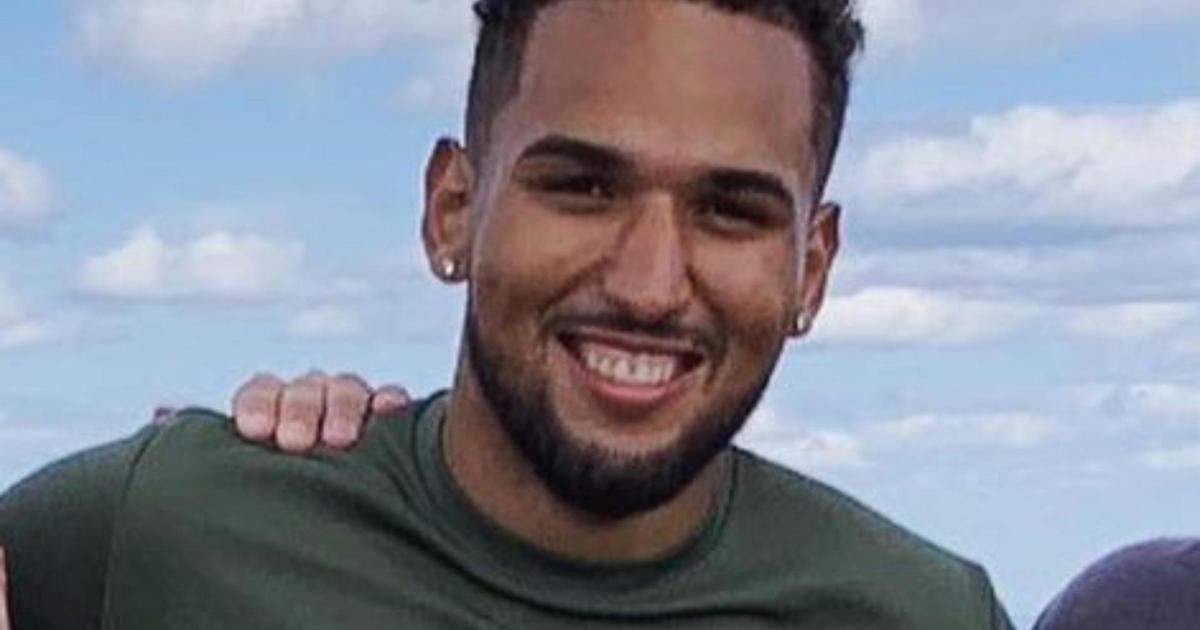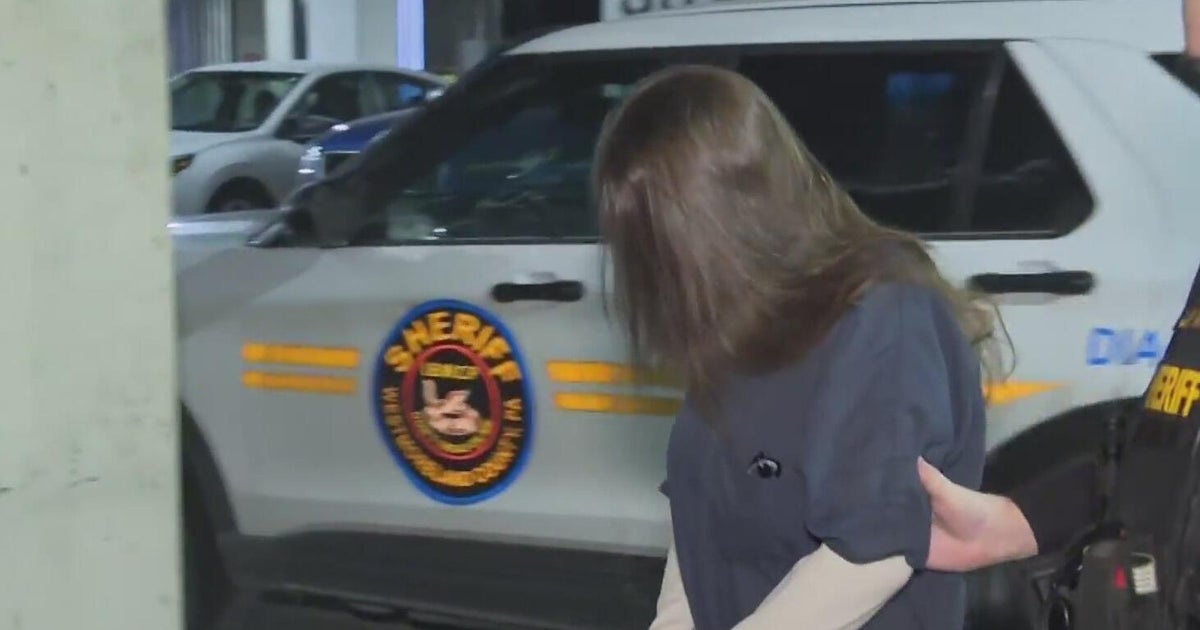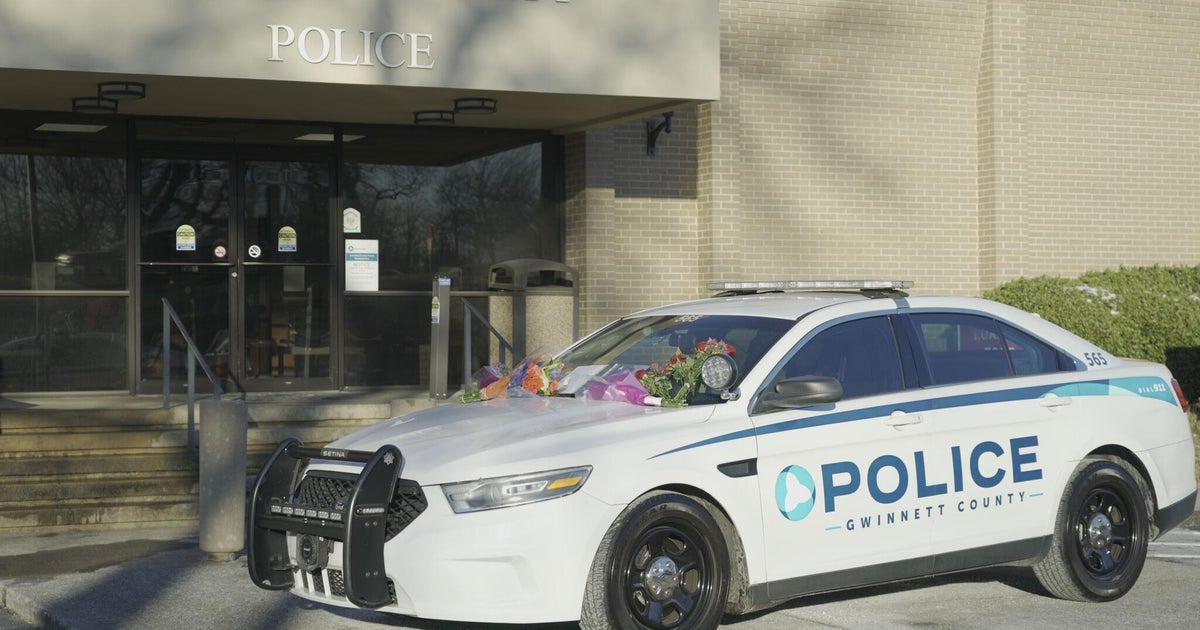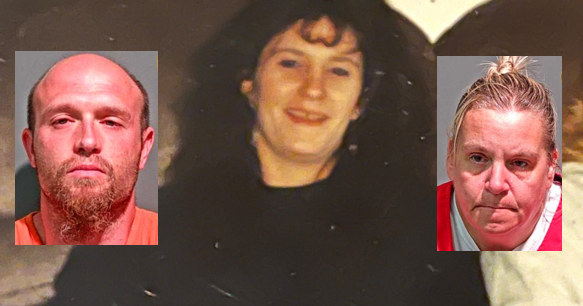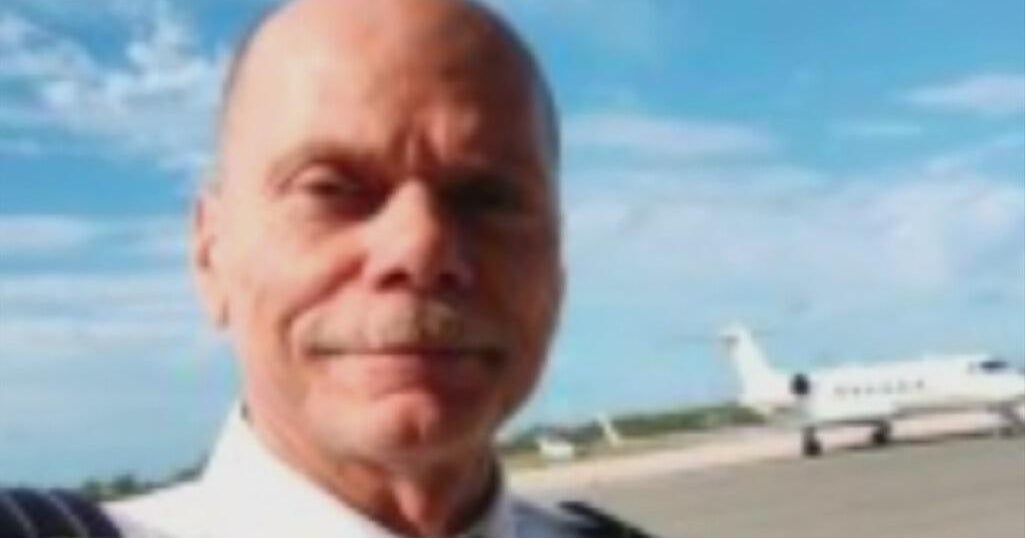Derek Chauvin Trial, March 29: Judge Stops Testimony For Day Due To Technical Difficulties
UPDATE (4:30 p.m. CT): Much of the state's questioning of Donald Williams, who witnessed Floyd's arrest and can be heard on the video that went viral after Floyd's death, focused on Williams' training in mixed martial arts.
Williams came upon the scene as he was heading to Cup Foods. He described seeing Chauvin kneeling on Floyd's neck and seeing Floyd "on the ground pretty much pleading for his life."
Williams also saw Officer Tou Thao at the scene, describing him as "the dictator ... He controlled the people, he controlled me. He was the guy that let it go on while it went on."
Prosecutor Matthew Frank asked Williams multiple questions about chokeholds, which Williams said he had been on both sides of in his fighting career.
In particular, the state focused on what Williams called a "shimmy," which he said is used "to get the choke tighter." While watching video of Chauvin kneeling on Floyd, Williams identified multiple so-called "shimmies."
During Williams' testimony, Judge Peter Cahill ordered the jurors to leave the room and asked Williams to stick to "what you observed, not your conclusions." He also asked Frank to be more pointed with his questions.
Defense attorney Eric Nelson had earlier objected to statements Williams made about a potential cause of Floyd's death.
Due to technical difficulties with the court's live feed, Cahill cut proceedings short. Testimony from Williams will resume at 9:30 a.m. Tuesday.
UPDATE (3:40 p.m.): The defense questioned Alisha Oyler about statements she gave to a BCA agent and the crowd that gathered during Floyd's arrest.
The state briefly questioned her on redirect and then she was excused from the stand.
The prosecution's third witness, Donald Williams, has worked in security and lives "not too far" from Cup Foods.
UPDATE (3:05 p.m.): The state asked Alisha Oyler, who was working at the Speedway across from Cup Foods on the night of George Floyd's death, why she recorded multiple cell phone videos of the scene.
"I always see the police and they're messing with people," Oyler said. "And it's wrong and it's not right."
The state has finished questioning Oyler and court is on a brief break.
UPDATE (2:20 p.m.): State calls its next witness to the stand, 23-year-old Alisha Oyler. She is the former shift lead at the Speedway gas station across from Cup Foods at 38th & Chicago.
She took cell phone video of the incident, which shows officers attempting to get Floyd into the police squad.
Judge has asked her to speak up due to her soft voice.
UPDATE (2:10 p.m.): Defense questioned 911 dispatcher on the timeline of her watching surveillance camera footage: when she saw the squad car shaking back and forth, and when she decided to call the police sergeant.
Prosecution now has some follow-up questions.
UPDATE (1:30 p.m.): Trial resumes with defense cross-examining Minneapolis 911 dispatcher Jena Scurry. She says she's only seen police situations on street cameras/surveillance video as it happened a few times over the course of her career.
UPDATE (12:33 p.m.): Following opening statements, prosecutors in the trial of Derek Chauvin questioned Monday their first witness in the case, Minneapolis 911 dispatcher Jena Scurry. She made history as being the first trial witness to be broadcast from a Minnesota courtroom.
Scurry told Assistant Attorney General Matthew Frank that she dispatched officers on May 25 to Cup Foods, where George Floyd had allegedly tried to pass a fake $20 bill. She said she viewed the arrest on a surveillance camera overlooking the area. When she saw the officers kneeling on Floyd for several minutes, she called a sergeant, the officers' supervisor.
"My instincts were telling me that something's wrong," she told the prosecutor, adding that she'd never made a call like that to a sergeant in her seven-year career as a dispatcher.
The defense will have a chance to cross examine Scurry at 1:30 p.m., following the court's lunch break.
Earlier in the morning, both sides gave their opening statements in the case. The prosecution played the entire bystander video of Floyd's arrest, with prosecutor Jerry Blackwell telling the jurors: "I can tell you that you can believe your eyes -- it's homicide, it's murder."
Eric Nelson, Chauvin's attorney, asked for jurors to consider all the evidence in the case. He said that Chauvin was doing what he'd been trained to do over his near two-decade career on the force.
UPDATE (11:01 a.m.): During opening statements on Monday, prosecutors in the Derek Chauvin trial showed the jury the graphic bystander video of George Floyd's arrest.
"I can tell you that you can believe your eyes -- it's homicide, it's murder," prosecutor Jerry Blackwell said after showing jurors the 9-minute, 29-second video. He noted that Floyd said "I can't breathe" 27 times before he lost consciousness as Chauvin knelt on his neck.
Blackwell stressed that Minneapolis police officers are trained that it's their responsibility to care for people in their custody. He told the jury that the evidence shows that Chauvin used lethal force against Floyd for several minutes, noting that this case is not about "split-second" decision-making.
Blackwell addressed Chauvin's opioid addiction, but said that he lived with it for years before encountering Chauvin.
Eric Nelson, Chauvin's attorney, said in his opening statements that Chauvin was doing "exactly what he was trained to do over his 19-year career."
He highlighted the incredible amount of evidence in the case, perhaps urging the jury to consider more than just the bystander video that the prosecution showed in court.
Nelson told the jurors that before Chauvin arrived at the scene, Floyd struggled with officers and appeared "drunk...not acting right," according to clerks in Cup Foods, where Floyd allegedly tried to pass a fake $20 bill.
Speaking on Floyd's cause of death, Nelson noted that the autopsy showed that there was no bruises found on Floyd's neck or shoulders -- the "telltale sign" of death by asphyxiation.
UPDATE (9:11 a.m.): All of the jurors appeared in court Monday morning. As such, the 15th juror was dismissed. The 15th juror was seated last week as a secondary alternate in case one of the 12 jurors and two alternates were excused ahead of opening statements.
Opening statements are slated to start after Judge Peter Cahill hears motions.
UPDATE (8 a.m.): The family of George Floyd, civil rights attorney Ben Crump, and The Rev. Al Sharpton held a news conference in downtown Minneapolis ahead of opening statements in the Derek Chauvin trial.
"This case is not hard," Crump told the crowd, "just look at that torture video," referring to the bystander video that captured Chauvin kneeling on Floyd's neck for nearly nine minutes as Floyd repeatedly said he couldn't breathe.
At 8:46 a.m., Sharpton and others planned to take a knee outside the courthouse for 8 minutes and 46 seconds, highlighting the length of time that Floyd was under Chauvin's knee.
According to legal experts, the bystander video could be played in court Monday morning as part of the prosecution's opening statements.
MINNEAPOLIS (WCCO) -- Opening statements are scheduled to begin Monday in the trial of Derek Chauvin, the former Minneapolis police officer accused of murdering George Floyd.
The trial of the ex-officer is the most high-profile case in Minnesota history, and it's all being streamed online, as few people are allowed in the courtroom due to COVID-19 restrictions. To watch WCCO-TV's gavel-to-gavel coverage, go to CBSN Minnesota.
Monday's proceedings are slated to start at 9 a.m. with jury instructions, opening statements and testimony. Protests are also expected Monday, just as there were protests at the start of jury selection three weeks ago. One of the demonstrations will involve Floyd's family and The Rev. Al Sharpton, who is expected to take a knee for 8 minutes and 46 seconds outside the downtown Minneapolis courthouse, highlighting the amount of time Chauvin knelt on Floyd's neck, as captured in bystander video.
"We rebuke when people say this is a hard case," said Ben Crump, the attorney representing Floyd's family, on CBS This Morning. "This murder case is not hard. You just look at that torture video...Had George Floyd been a white American citizen, nobody would be saying that this is a difficult case."
Floyd, a Black man, died on May 25 after being arrested outside a south Minneapolis convenience store. The bystander video shows Chauvin, who is white, kneeling on Floyd's next for nearly 9 minutes as Floyd lay prone, handcuffed, and repeatedly saying he couldn't breathe.
Chauvin is facing charges of second-degree murder, third-degree murder and manslaughter. Three other former Minneapolis police officers are also charged with aiding and abetting, although their trial is slated for August.
Defense attorney Joe Tamburino, who is not affiliated with this case, says that during opening statements, both sides will focus on Floyd's cause of death.
"The prosecutor is going to come out strong and argue that this was about unreasonable force used by Mr. Chauvin, and the defense will come out strong and argue that this is really about cause of death," he said. "Those are the two running themes that will battle each other throughout the trial."
Chauvin's defense is expected to lean heavily on their expert medical witness who will likely testify that Floyd's death was not a murder, but that he died because of pre-existing health conditions and drugs in his system. That argument is supported, in part, by the medical examiner's report that found Floyd had "potentially fatal levels" of fentanyl in his body.
It's unclear exactly what the state will argue in opening statements, but prosecutors could show, pending the court's review, part or all of the bystander video of Floyd's final moments.
Twelves jurors and two alternates will hear the case, although a 15th person was also seated in case one of the other jurors was unable to serve when opening statement begin. That 15th person will be dismissed Monday if they do not need to serve.
The jurors on the panel are a diverse cross section of Hennepin County. The panel includes nine women and six men; nine are white, four are Black and two identify as multi-racial, the court says. They range in age from people in their 20s to a grandmother in her 60s. Among them are a chemist, a nurse, and a social worker.
